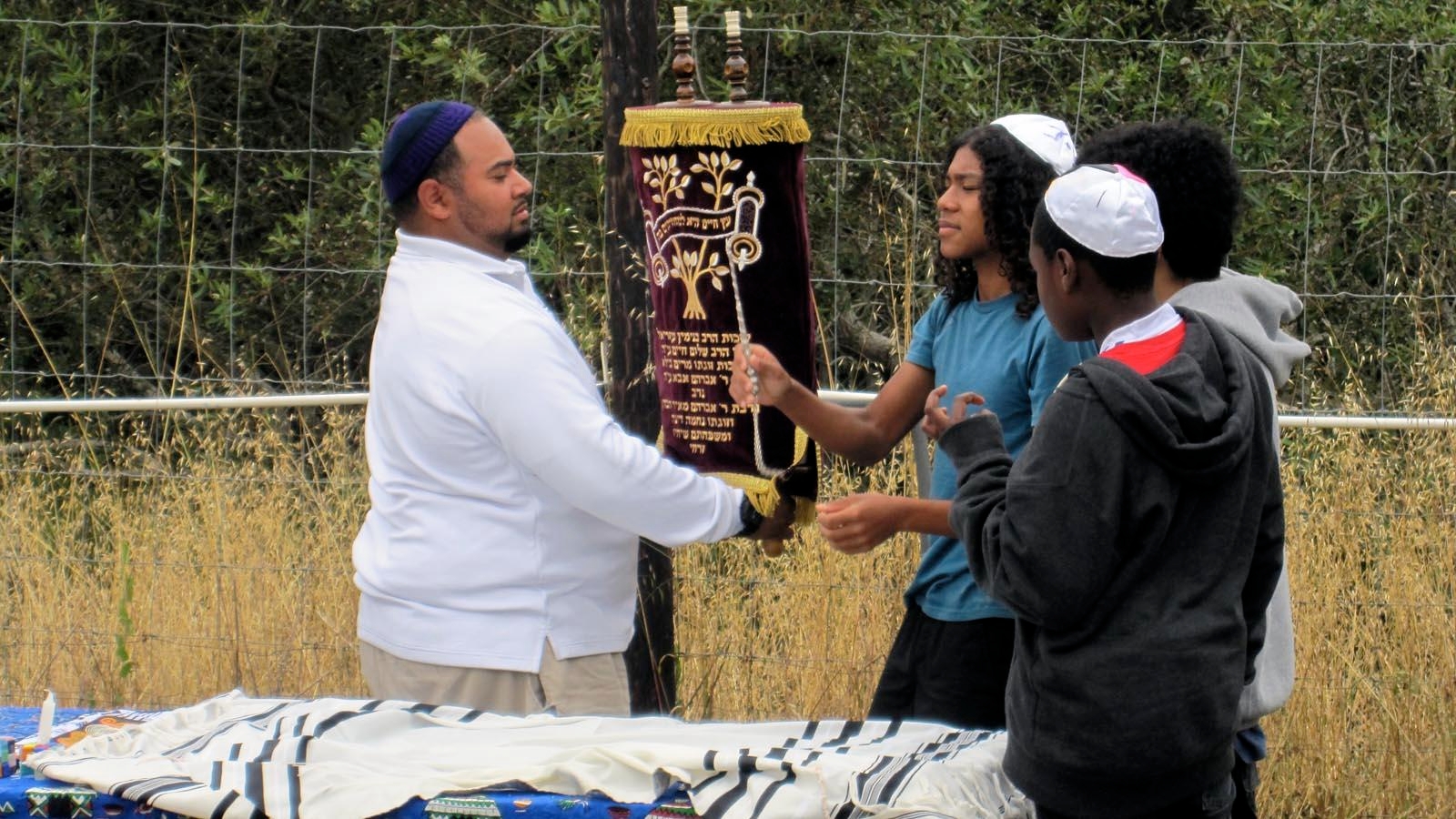Foundation For Jewish Camp CEO Jeremy Fingerman
As summer approaches and we gear up for another terrific session of Camp Be’chol Lashon, I keep thinking about all the kids who—regardless of the camp they are heading to— are worried they might not feel like they “belong.” I relate.My own commitment to Jewish camping comes in part from my childhood experience where I was usually the only Black camper at a variety of Jewish camps. As a camp director, I am committed to making sure that all those in my charge feel connected. And recently, I got a real life reminder of just how important reaching out and connecting can be.
This winter I was honored to attend the Jewish Camp Leaders Assembly in New Brunswick, New Jersey. Attending “Leaders” opened my eyes to the vast world of Jewish camping, meeting and greeting numerous Jewish camp professionals invested in the varying interests and needs of our Jewish youth.
Camp Be’chol Lashon Co-Director Kenny Kahn
As exciting as this was, I once again had that familiar feeling of being on the outside looking in. I am a fairly new West Coast camp director of a small camp with a strong but still budding reputation. I was out on the East Coast by myself and knew only a handful of people heading into this largely regional powerhouse of Jewish camp staff. And, of course, the most superficial reason of all being that I am a man of color who, among his Jewish peers, looks out of place or invites inquiry as to the validity of my Jewish roots.
After our welcome dinner and schmooze time, like many of the participants I headed toward the hotel watering hole for some group reminiscing. Being new, after a round of small talk, I found myself with a tumbler of whiskey on the rocks playing a game of ‘one-on-none’ at the pool table behind the bar.
A gentleman whom I recognized from dinner approached the table.
He had spoken to the entire group in attendance regarding “Leaders,” touching on the overarching theme of the conference; one field, moving forward. He spoke about his previous work with Campbell Soups and how transitioning to the Jewish camp community allowed him to invest in a community that provided so much, not only to him but also to his loved ones. I had shed my name tag but he approached me and with familiarity said “Kenny, it’s great to have you out here from the West Coast. I get your monthly newsletter and enjoy reading it from top to bottom. I love the work you and your organization and camp are doing collectively.” He hung back and played with me for a bit before heading out. As I placed my empty glass on the counter, as newcomers I got the feeling that we shared a sense of being on the outside. Maybe not, but by coming over he had made me feel so welcome.
I finished my second round of libations and billiards on the solo and made my way to my sleeping quarters. I soon realized I forgot to pay for my drink, and to remove any potential stigma of the Jew of color not covering his bill, I headed back only to find that my tab was covered. I suspected my new friend had something to do with this and went to find him in the program.
It turned out that the same gentlemen who went out of his way to check in and give kudos for the work I do is none other than Jeremy Fingerman, chief executive officer of the Foundation for Jewish Camping. He is one of the greater movers and shakers in the field of Jewish camping.
The following morning at breakfast I sat with one of my former campers who now directs Camp Kee Tov in Berkeley, California. As Zach and I sat among a few familiar faces, I felt a gentle pat on my shoulder followed by “’Morning Ken, it was great talking with you last night!” from Jeremy as he headed to his table up front. Zach’s look of bewilderment, as he questioned how on earth the Foundation for Jewish Camping CEO and I were on a first name basis so quickly, if at all made me realize that now I was an insider. Even though they say it’s lonely at the top, one could argue the same on the side or down through to the bottom
Experiences like this remind me that in today’s Jewish community we each have a responsibility to advocate for one another, take interest in happenings beyond our initial scope, and welcome the idea of making new connections. Diversity and inclusion was more than a topic of conversation or presentation. It is at the heart of what we build as programmers, lay-leaders, directors, staff and campers. We build life-long memories and experiences, where each member leaves camp eager to return the following year and often with companions eager to engage and become members too.
Like this post? Join the conversation through MyJewishLearning’s weekly blogs newsletter.



